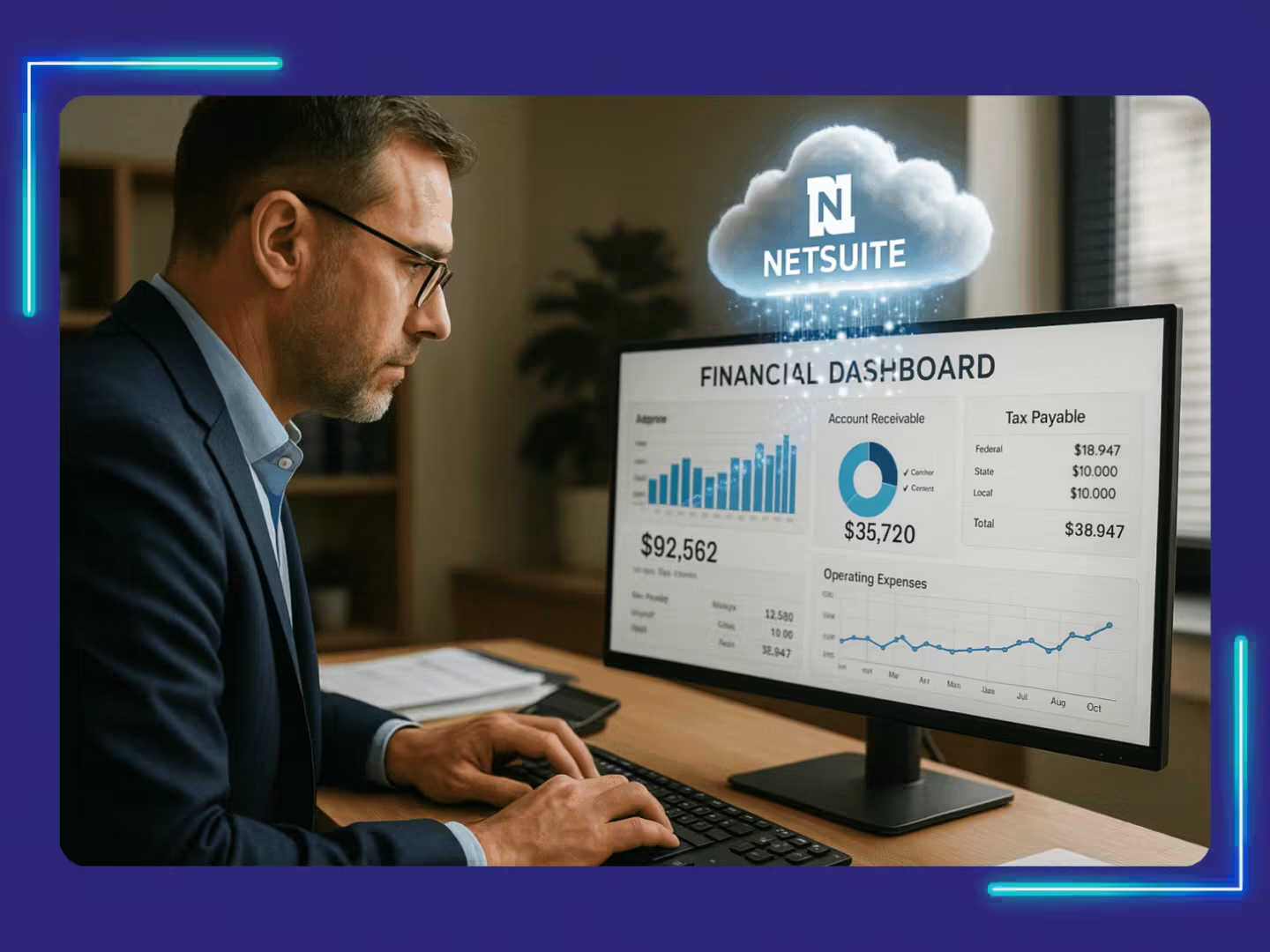Table of Content
Share This Article
- Published: November 8, 2023
- Last Updated: February 10, 2025
Managing your payments can be a daunting task for anyone, especially if you are new to financial management. But fear not; we have got you covered. In this blog, we will provide you with a step-by-step breakdown of the basics of the accounts payable process, including how to create a robust accounts payable (AP) system, common mistakes that need to be avoided, best practices to streamline AP management, and the role of technology. Whether you are a business owner or someone who wants to keep their finances in order, this blog will equip you with the necessary knowledge and tools to manage your payments effectively. So, let us get started and embark on this journey toward mastering the art of accounts payable!
Definition and Importance of Accounts Payable
Accounts payable refer to the money that a business owes to vendors or suppliers for goods or services that have been received but not yet paid for. In other words, it is the amount a business needs to pay for the purchases made from other businesses on credit or through deferred payment terms.
Effective management of the accounts payable process involves efficient and timely processing of invoices, monitoring cash flow to ensure sufficient funds are available, verifying the accuracy of vendor statements, and communicating effectively with vendors to resolve any issues or discrepancies. As a result, good accounts payable management helps to ensure that a business maintains a positive reputation with its vendors, manages its finances effectively, and avoids negative impacts on its credit rating.
5 Key Terminologies of Accounts Payable Process
A business must have a strong understanding of the terminologies used in the accounts payable process to be able to effectively carry out the accounts payable function. Here are 5 key terms related to accounts payable that every business owner should know:
-
Invoice:
An invoice is a document provided by a vendor or supplier that outlines the services rendered or goods sold along with their corresponding costs.
-
Purchase Order:
A purchase order is issued by a business when they want to buy goods or services from a vendor or supplier. It includes details about what items are being purchased, quantities needed, and agreed-upon prices.
-
Receiving Report:
This report documents any goods received from vendors/suppliers, ensures accuracy between purchase orders & invoices, and addresses discrepancies if found.
-
Payment Terms:
Payment terms specify when payments need to be made for goods/services purchased (i.e., 30 days after receipt of invoice).
-
Ageing Report:
An ageing report is a financial report that summarises outstanding balances owed to vendors or suppliers over a certain period.
Common Mistakes to Avoid in Accounts Payable Management
- One common mistake is failing to properly validate invoices against purchase orders or contracts. This can result in overpayments or payments for goods/services that were never received.
- Inaccurate record keeping is another detrimental pitfall businesses encounter when managing their accounts payable processing. Failing to track and document every transaction will lead not only to confusion within the accounting system but also put you at risk for financial audit issues down the line.
- Another mistake is delayed payments with no valid reason; here, vendors may not take future transactions seriously, resulting in failed relationships or even legal action against your business.
- Another frequent error is having no specific controls in place for fraud detection and prevention, which can lead to significant financial losses if detected too late.
- Lastly, failure to reconcile accounts payable on a regular basis may lead to inaccuracies and inconsistencies in reporting.

How to Create a Robust Accounts Payable System?
Creating a robust accounts payable system is crucial for any business. It requires a systematic approach involving efficient invoice management, timely payment processing, and an accurate bookkeeping process.
-
Establish Clear Procedures:
Businesses should establish clear policies and procedures for invoice processing and payment approvals. This can include assigning specific roles to different employees involved in the process, setting up an electronic approval workflow system or ensuring all invoices are recorded accurately.
-
Ensure Full Visibility:
Having complete visibility over vendor-related data, such as reports on late fees paid out versus those waived off, can serve as valuable insights to make important business decisions about vendor selection and company cash flow.
-
Monitor and Reconcile Accounts:
Monitoring and reconciling accounts is an essential part of creating a robust accounts payable system. Regularly reviewing vendor statements and reconciling them with your accounts helps identify discrepancies or errors and resolve them quickly. This not only ensures that your payments are accurate but also helps prevent potential fraud or financial loss. By closely monitoring your accounts, you can identify recurring issues and patterns that may require changes to your processes or policies.
-
Effective Communication:
Developing effective communication channels between suppliers, vendors, and staff involved in accounting processes is also vital. Regular follow-ups will help guarantee prompt resolution of issues involved in the accounts payable process, like invoice discrepancies or disputes over missed payments.
-
Utilise Automated Tools:
Investing in modern software solutions can bring substantial benefits like AI-powered automation capabilities that reduce manual errors. Furthermore, it frees your team from mundane tasks so they may focus on more value-added activities related to building relationships with partners/vendors/service providers. To gain the full advantages of automated tools, expert help is needed. Outsourced accounting and bookkeeping services are reliable when it comes to experts; their team consists of knowledgeable professionals with deep experience in advanced accounting software.

Role of Automation and Outsourcing in Streamlining AP Process
In today’s fast-paced and technology-driven world, the role of technology in managing accounts payable has become increasingly important for businesses. Accounts payable is a critical financial function, as it involves paying suppliers and vendors on time while minimising errors and discrepancies. Technology has revolutionised this process by automating invoice processing, streamlining workflows, and providing real-time visibility into payment status. By digitising paper invoices and adopting electronic invoicing (e-invoicing), businesses can significantly reduce processing costs, enhance accuracy, eliminate manual data entry errors, speed up approval cycles, and detect fraudulent activities faster. Moreover, cloud-based accounting software offers advanced features such as vendor management tools that allow easy communication with suppliers regarding invoices or payments through online portals from anywhere. Thus, implementing automated tools can help ensure a systematised accounts payable system.
Nevertheless, combining technology with accounting experts can further improve businesses’ capabilities in managing their AP process more efficiently while mitigating risks of fraud or compliance issues. Outsourced accounting and bookkeeping services can be a reliable option for achieving this. Their team of proficient professionals are proficient in numerous accounting software and accounting processes, making them an excellent choice in streamlining your accounts payable system.
Final Words
In conclusion, managing accounts payable is a critical function for any business to keep track of its cash flow and maintain healthy relationships with vendors. By understanding the basics of accounts payable, you will begin to find that managing payments is less daunting than it first seems. Whether you are dealing with current customers or setting up payment terms for new customers, mastering the basic skill set required in accounting will give you confidence when handling payments on both ends. Outsourced accounting services providers offer a great solution for companies that lack the expertise or resources to handle their own AP management. They bring a wealth of knowledge and experience to the table and can help businesses optimise their financial management processes while allowing them to focus on other core operations. Whiz Consulting is a dependable provider that offers such services. Our team of accounting experts have diverse industry knowledge and experience. With such proficiency, you can maintain good relationships with vendors, mitigate financial risks, and streamline your overall AP process. Contact us today and ensure good relationships with your vendors, reduce financial risk, and ultimately streamline your overall AP process.

Get customized plan that supports your growth

Thousands of business owners trust Whiz to manage their account
Let us take care of your books and make this financial year a good one.








